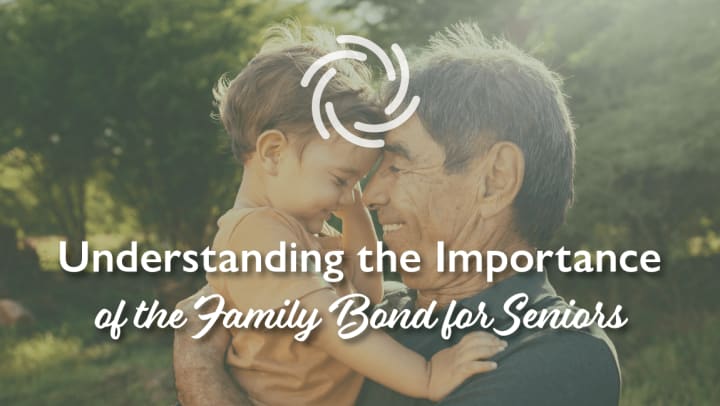The bonds of family can be strong and enduring. For seniors, these connections serve as lifelines providing comfort, companionship, and an invaluable sense of belonging as they navigate the golden years of their lives. As society progresses and modern lifestyles lead to geographic dispersion and busy schedules, it's crucial to recognize and cherish the significance of family ties, particularly for our aging loved ones.
Nurturing Emotional Well-being
From infancy to old age, human beings crave connection. For seniors who may grapple with feelings of loneliness or isolation due to factors such as retirement, loss of a spouse, cognitive changes, or physical limitations, the presence of family members can be a powerful source of emotional support. Studies consistently highlight the correlation between strong family relationships and improved mental health outcomes for older adults.
The simple act of spending time together—whether sharing meals, engaging in conversation, or participating in leisure activities—can uplift spirits and foster a sense of fulfillment. Knowing that loved ones are there to listen, empathize, and offer encouragement can mitigate feelings of depression and anxiety, promoting overall well-being.
Providing Practical Support
Beyond emotional support, family bonds play an important role in meeting the practical needs of seniors. As individuals age, they may encounter challenges related to daily tasks such as household chores, transportation, and healthcare management. In such circumstances, family members often assist with running errands, accompanying their loved one to medical appointments, or helping with household maintenance.
This hands-on support ensures seniors maintain their independence and quality of life and reinforces their sense of security and dignity. Knowing that they can rely on family members for practical help alleviates stress and enables seniors to navigate the complexities of aging with greater ease and confidence.
Senior Living and the Family Bond
For older adults transitioning to senior living, the family bond can facilitate a smooth transition and enrich their experience. While senior living offers a range of amenities, social activities, and support services tailored to the needs of older adults, the adjustment process can still take time. Family members often advocate for their loved ones, liaising with community staff, voicing concerns, and communicating their loved one's preferences. By actively engaging with staff members, participating in care planning meetings, and advocating for quality care, family members can reinforce the needs of their loved one. This collaborative approach promotes transparency, trust, and mutual respect between families and senior living communities.
Family members also play a pivotal role in encouraging seniors to embrace social opportunities and participate actively in community life. Attending social gatherings, joining interest-based clubs, or volunteering together can expand a senior’s social networks and forge meaningful connections within the community. These shared experiences enhance quality of life and strengthen family bonds through shared memories and interests.
Maintaining Family Traditions
Family members can play a significant role in ensuring that cherished family traditions continue to be honored and celebrated, even if their loved one moves to senior living.
Family bonds serve as conduits for passing down cultural heritage and traditions from one generation to the next. For seniors, sharing stories, recipes, rituals, and customs with younger family members fosters a sense of continuity and identity, affirming their place within the family and broader community.
Celebrating holidays, observing religious practices, and participating in cultural events can create lasting memories and strengthen familial ties across generations. By honoring and preserving family traditions, seniors can impart wisdom, values, and cultural heritage to their descendants, enriching their lives and reinforcing the bonds that unite them.
Fostering Intergenerational Connections
One of the most precious aspects of family bonds is the opportunity for intergenerational connections. When seniors interact with their grandchildren, nieces, nephews, and other young relatives, they can experience joy and fulfillment and contribute to the growth and development of younger generations.
Intergenerational relationships offer unique benefits for both seniors and younger family members. Seniors gain a sense of purpose and rejuvenation by sharing their knowledge, life experiences, and wisdom with the younger generation. Conversely, younger family members benefit from the guidance, mentorship, and unconditional love provided by their senior loved ones, laying the foundation for strong family bonds that transcend age differences.
Strengthening Family Bonds
The family bond provides support, comfort, and connection for seniors navigating this new chapter of life. Family members play a pivotal role in enhancing their senior’s quality of life by fostering emotional support, advocating for them, enriching their social connections, and preserving family traditions.
As we recognize the importance of family bonds for seniors, it's essential to cultivate collaborative partnerships between families, seniors, and senior living communities. By working together to create a nurturing and inclusive environment that honors the unique needs and preferences of each individual, we can ensure that seniors thrive and flourish, surrounded by the love and support of their families.





